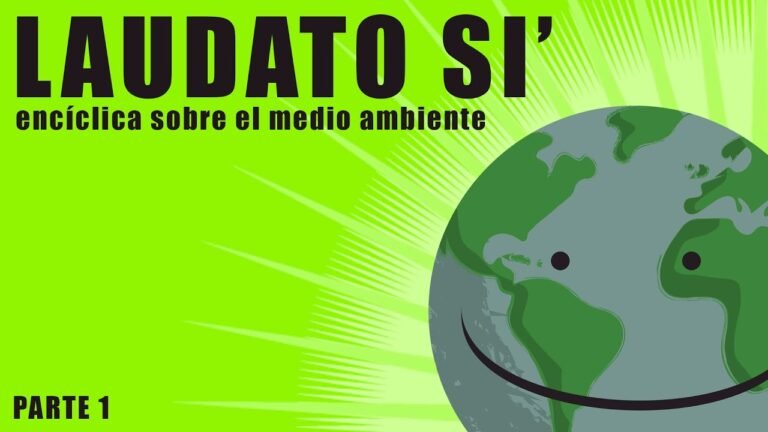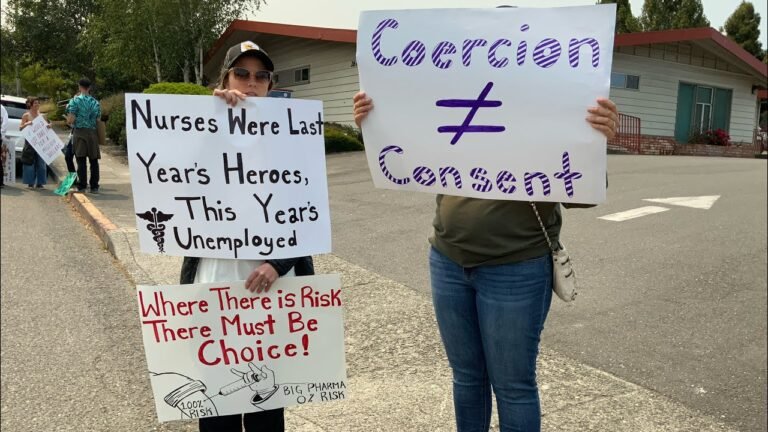Embracing Laudato Si: A Call to Environmental Stewardship
In a world grappling with environmental crises and social inequality, Pope Francis’s encyclical Laudato Si’ stands as a profound call to action. Published in 2015, this groundbreaking document urges individuals and nations alike to embrace a holistic approach to caring for our planet and its inhabitants. By intertwining ecological concerns with social justice, Laudato Si’ not only highlights the urgency of environmental stewardship but also emphasizes our shared responsibility to foster a more equitable and sustainable future for all. As we reflect on its teachings, the encyclical continues to inspire a global movement towards a more harmonious relationship with nature and each other.
What is the core message of Laudato Si’?
The core message of Laudato Si’ emphasizes the interconnectedness of all creation, urging care for the environment, social justice, and a sustainable future for all.
What is Laudato Si and what does it mean?
Laudato Si’ is an encyclical published by Pope Francis on June 18, 2015, addressing the urgent need for ecological awareness and action. The title, which translates to “Praised Be,” is derived from the opening line of Saint Francis of Assisi’s Canticle of the Creatures. This beautiful invocation emphasizes the interconnectedness of all creation and reminds humanity of its responsibility to nurture and protect our shared home.
The encyclical serves as a heartfelt call to action, urging individuals and communities to reflect on their relationship with the environment. It highlights the importance of caring for “our sister, Mother Earth,” and encourages a collective effort to combat climate change, reduce pollution, and promote sustainable practices. Through Laudato Si’, Pope Francis inspires a movement toward greater environmental stewardship and a deeper appreciation for the natural world.
What is the message of Laudato Si?
Laudato Si’, an encyclical by Pope Francis published in May 2015, delivers a powerful message about the urgent need to care for our natural environment and promote the well-being of all people. It emphasizes the interconnectedness of all creation, highlighting the profound relationship between God, humanity, and the Earth. Through its call for ecological awareness and social responsibility, the encyclical urges individuals and communities to reflect on their impact on the planet and strive for sustainable practices that honor both the environment and the dignity of every person.
What does Pope Francis propose in Laudato Si?
Pope Francis calls for a collective “ecological conversion,” urging individuals, families, and communities at all levels to recognize the pressing challenge of caring for our shared home. He emphasizes the need for a fundamental shift in mindset and behavior, advocating for a sustainable approach to our relationship with the environment. This call to action transcends borders, inviting a global response to the ecological crises we face today.
In “Laudato Si,” the Pope underscores the interconnectedness of all creation and the moral imperative to protect it. He encourages us to engage in dialogue and collaboration, fostering a spirit of stewardship that honors the earth and supports the well-being of future generations. By embracing this transformative journey, we can create a more just and sustainable world for all.
Nurturing Our Planet: A Journey Towards Sustainable Living
In a world increasingly challenged by environmental issues, the pursuit of sustainable living has become not just a choice but a necessity. By embracing practices that reduce our carbon footprint and conserve natural resources, we can foster a healthier planet for future generations. Simple changes, such as adopting a plant-based diet, reducing waste through recycling, and supporting local economies, can collectively make a significant impact. Each individual’s commitment to sustainability can spark a ripple effect, encouraging communities to engage in eco-friendly initiatives and raising awareness about the importance of protecting our environment.
As we embark on this journey towards sustainable living, education and innovation play decisivo roles in shaping our future. By investing in renewable energy sources and promoting green technologies, we can transition to a more sustainable economy that prioritizes the well-being of our planet. Engaging in conversations about environmental stewardship and sharing success stories will inspire others to join the movement. Together, we can cultivate a culture of sustainability that not only nurtures our planet but also enhances our quality of life, ensuring a vibrant and thriving ecosystem for generations to come.
Uniting for Creation: The Urgency of Environmental Care
In an age where environmental degradation is more pronounced than ever, the call for collective action has never been more urgent. Communities across the globe are recognizing that the health of our planet directly impacts our quality of life. From rising temperatures to increasing natural disasters, the consequences of neglecting our environment are evident. It is imperative that we unite in our efforts to foster sustainable practices and advocate for policies that prioritize ecological preservation.
Collaboration among individuals, organizations, and governments is essential to drive meaningful change. Grassroots movements are gaining momentum, inspiring citizens to take charge of their surroundings by initiating local clean-up campaigns, promoting recycling, and supporting renewable energy initiatives. These efforts not only enhance local ecosystems but also create a sense of community and shared responsibility. By working together, we can amplify our impact and inspire others to join the cause.
Education plays a pivotal role in this movement, equipping people with the knowledge and skills necessary to make informed decisions about their environmental footprint. Schools, businesses, and community organizations are increasingly incorporating sustainability into their curricula and practices. By fostering a culture of environmental awareness, we can cultivate a generation that values and protects our planet. Together, let us embrace this urgency and commit to a united front for the sake of creation and the future of our world.
From Words to Action: Implementing Laudato Si Principles
In a world increasingly challenged by ecological crises, the principles outlined in Pope Francis’s encyclical, Laudato Si, serve as a decisivo framework for action. This call to stewardship emphasizes the interconnectedness of humanity and nature, urging individuals, communities, and governments to take responsibility for the environment. By fostering a culture of care that transcends borders, we can transform our relationship with the earth and promote sustainable practices that honor both our planet and its inhabitants.
Implementing the principles of Laudato Si requires a multi-faceted approach that encompasses education, advocacy, and grassroots initiatives. Educational programs can empower individuals to understand their ecological footprint and inspire them to make conscious choices in their daily lives. Advocacy for policies that prioritize sustainability and social justice is essential, as it creates systemic change at local, national, and global levels. Grassroots movements, driven by passionate communities, can ignite a sense of purpose and urgency, driving collective action towards a more sustainable future.
To turn words into meaningful action, collaboration among diverse stakeholders is vital. Governments, businesses, and civil society must unite in a shared commitment to environmental justice and the protection of our common home. By leveraging technology and innovation alongside traditional ecological knowledge, we can develop solutions that are not only effective but also equitable. Together, we can embody the spirit of Laudato Si, transforming our visions for a sustainable world into tangible actions that benefit both current and future generations.
Cultivating a Greener Future: Inspiring Change Through Stewardship
In a world increasingly confronted by environmental challenges, the call for stewardship has never been more urgent. By embracing sustainable practices, individuals and communities can play a vital role in nurturing the planet. This commitment to stewardship not only fosters a healthier environment but also inspires others to join the cause, creating a ripple effect that can lead to lasting change.
Education and awareness are powerful tools in this movement. By sharing knowledge about eco-friendly practices and the importance of biodiversity, we can empower people to make informed decisions. Workshops, community programs, and digital platforms serve as vital resources, offering guidance on everything from reducing waste to supporting local ecosystems. When individuals recognize their impact, they become motivated to contribute positively to their surroundings.
Ultimately, cultivating a greener future requires collective action and a shared vision. By working together, we can restore natural habitats, promote sustainable agriculture, and advocate for policies that prioritize the health of our planet. Each small step taken in stewardship can lead to significant transformations, reinforcing the idea that through collaboration and commitment, we can inspire change and secure a brighter, more sustainable future for generations to come.
Laudate Si serves as a powerful call to action, urging individuals and communities to embrace a sustainable future through environmental stewardship and social responsibility. By fostering a deeper connection with nature and recognizing our shared responsibility for the planet, we can inspire meaningful change. The principles outlined in this encyclical challenge us to think critically about our impact on the Earth and motivate us to cultivate a more harmonious relationship with the environment for generations to come.






